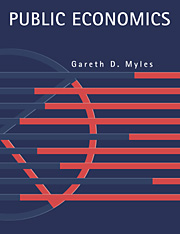Book contents
13 - Overlapping generations economies
Published online by Cambridge University Press: 05 June 2012
Summary
INTRODUCTION
The overlapping generations economy, so called because of its assumed demographic structure, was introduced by Samuelson (1958). It has since proved useful in many areas of economics including macroeconomic growth theory, public economics and monetary economics. One of the economy's major points of interest is the welfare properties of its equilibrium. Even when the standard competitive assumptions are imposed, the equilibrium of the overlapping generations economy may not be Pareto optimal. This is in marked contrast to the Arrow–Debreu competitive economy.
Despite its value in many areas, as demonstrated by the previous chapters, there are several shortcomings of the Arrow–Debreu economy when applied to intertemporal issues. The first is that it is essentially static and, although it can be interpreted as intertemporal, this is not completely satisfactory as noted in chapter 2. It would seem to be stretching the interpretation too far to accept trading in a single period for all goods into the indefinite future. Trades in the economy are carried out by barter and there is simply no role for money. This is a consequence of the assumptions that agents are assumed to know universally the terms of trade between commodities and that any sequence of transactions can be completed without cost or hindrance. The equilibrium of the economy is also Pareto optimal, so there can be no inefficiency in investment or in the choice of production techniques.
- Type
- Chapter
- Information
- Public Economics , pp. 415 - 445Publisher: Cambridge University PressPrint publication year: 1995



